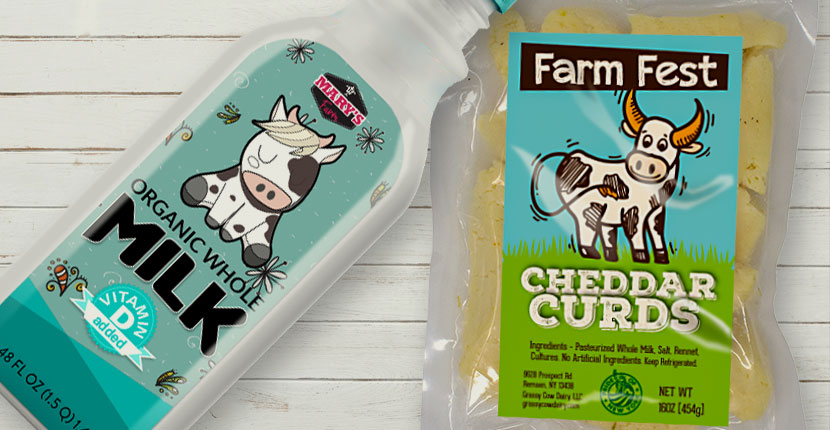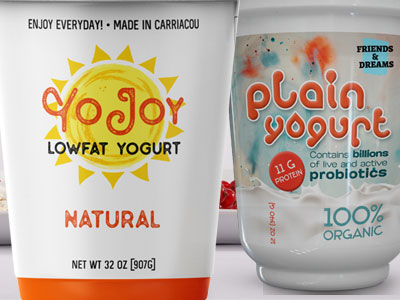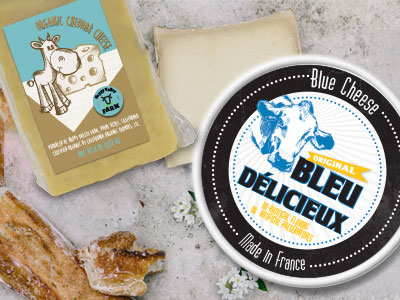People who are tolerant to lactose and other dairy ingredients can enjoy a variety of delicious products that are very nutrient-rich, such as milk, cheese, yogurt, sour cream, frozen desserts, butter, etc. The value of dairy products is in their vitamin and mineral content: vitamin A, vitamin D, potassium, calcium, magnesium, zinc, and many others. However, to be able to make health claims and inform people about all the benefits of consuming their products, dairy food manufacturers need to follow extremely rigorous food labeling requirements issued and regulated by food safety agencies.
Types of Claims on Dairy Product Labels
Similarly to cheese and yogurt labels, other types of dairy stickers need to contain basic food label elements as well. Those are: common name of the food product (i.e. “butter”), net weight in grams, name and address of the company that produces, packs or distributes the product, list of ingredients and information about the serving size, nutrients, vitamins and minerals.
Basic labeling is the easy part compared to claim labeling. The U.S. Food and Drug Administration has specific requirements for labeling of health claims, and non-compliance with these regulations can be very risky for food producers.
To inform consumers of nutritional value of their food products, food manufacturers use the following claims:
- Nutrient content claims
- Health claims
- Structure/Function claims
Nutrient content claims are used to showcase the fact that a product is rich in some valuable ingredient. If a food producer wants to inform consumers that their dairy product is an excellent source of calcium, for example, the product needs to contain at least 20% of the necessary daily value of calcium. If the product contains less than 20% calcium, but contains the “excellent source of calcium” claim, the FDA will probably pull the product from the market.
Health claims are not easy to qualify for. The FDA allows certain health claims for some dairy products (usually those that have lower fat content), so dairy food producers may qualify for claims about the positive effects of sodium on hypertension, potassium on blood pressure, calcium on osteoporosis, etc. These types of labels need to be approved by the FDA.
Structure/Function claims don’t need FDA’s approval before being placed on a food product, but they need to be completely truthful. They show consumers the positive effects of certain product elements on a healthy organism. An example is a claim that calcium in a particular product contributes to building strong bones. Food manufacturers can’t randomly place health claims on their product. They need to have scientific proof of the accuracy of such a claim.
Creating truthful and informative dairy product labels increases the chance of selling the product. Consumers are more informed about food contents nowadays and they like to know what they are consuming, so providing enough information about a product and highlighting its nutritional strengths will certainly result in more customers and more sales.
Choosing Dairy Product Label Materials
Choosing appropriate label stock and adhesive is as important as following FDA regulations on proper food labeling. Dairy products are often stored in moist or freezing conditions, so label materials need to be moisture-resistant or made from freezer grade stock to stay applied on the product for as long as the product’s shelf life.
Food Packaging Labels experienced team of label designers and printing professionals are here to help you choose the best combination of label materials for your product. We take into consideration your company’s aesthetic, number of labels required, available budget, your product’s future storing and handling conditions and other important information, to come up with a label solution that you will be happy with.



